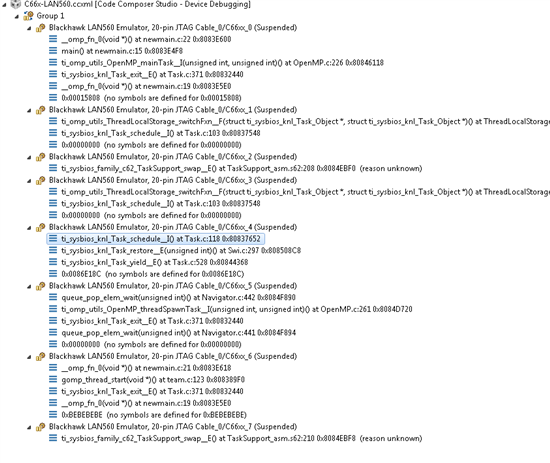Hi again,
To initialize per-core data structures, we currently have loops which are intended to be executed once by each core, and look like this:
int nOmpNumProcs = omp_get_num_procs();
#pragma omp parallel for schedule(static, 1) private(i)
for(i=0; i < nOmpNumProcs; i++)
{
printf("core %d was initialized", omp_get_thread_num());
fflush(stdout);
}
However, even with a static schedule and a chunk-size of 1, the output suggests only core 0 (first iteration) and core 6 were running the code:
[C66xx_0] core 0 was initialized
[C66xx_6] core 1 was initialized
[C66xx_6] core 2 was initialized
[C66xx_6] core 3 was initialized
[C66xx_6] core 4 was initialized
[C66xx_6] core 5 was initialized
[C66xx_6] core 6 was initialized
[C66xx_6] core 7 was initialized
So although omp_get_thread_num() returns the intended result, the actual scheduling seems to be done in a dynamic way.
Is there a better way to execute code in parallel which relies on core-local resources like L2SRAM?
Our legacy code has a clearly seperated initiliazation phase (which prepares data structures for multiple parallel loops), so unfourtunatly it isn't that easy to do initialization inside of the loop :(
Thank you in advance, Clemens


